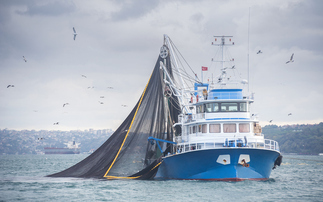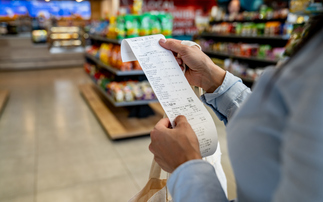CDP's Katie McCoy explains how consumer facing businesses are beginning to tackle the problem deforestation
It's in the food we eat, the clothes we wear and the groceries we buy. For the public, there is no getting away from the fact that much of what we consume is made with or derived from commodities that are known to be drivers of deforestation, like palm oil, soy, timber and cattle. Furthermore, according to analysis by Forest Trends, most of the commodities produced and exported into the global market are products of illegal deforestation.
So is the answer to stop buying Nutella for example, as France's environment minister Ségolène Royal initially suggested last week, because it is made with palm oil? Or is the onus on businesses to encourage the sustainable production of these commodities?
This is a common conundrum now facing consumer goods businesses. With the rise of environmentally-aware and social media savvy consumers, it has never been easier for people to hold their favourite brands to account. A study by Euromonitor found that if Kellogg's lost just one per cent of its customers due to boycotts, it would translate to a $200m drop in sales.
But just as consumer pressure can encourage businesses to change, companies too can work with suppliers to shift to sustainable practices. L'Oréal for example has understood that to achieve its zero-deforestation by 2020 goal, it needs to work closely with its suppliers. In 2007 the company mandated all of its suppliers of wood fibre-based products for packaging to use only wood fibres sourced from forests that are managed sustainably and that provide appropriate certification and traceability. L'Oréal achieved 97 per cent certified board for packaging by 2012, now it aims to have 100 per cent for packing and point of sale by 2020.
Moving from recognising risks to making a commitment to actually implementing that commitment is not easy. Consumer facing businesses such as L'Oréal, Nestle and Unilever are helping to demonstrate to others how these goals can be achieved. The first step is undertaking a scoping exercise to understand how your business may be exposed to deforestation-linked risks.
Operational risks are among the most commonly cited risks by companies disclosing through CDP. However, break this down across the supply chain, and you see a clear difference emerge between consumer facing businesses and producers. The former are less likely to identify operational risks linked to key commodities, whereas a higher proportion of producers and traders are more likely to see these risks.
This divergence doesn't mean consumer facing businesses are less exposed to operational risks. Trade embargos, lack of supply and product seizure are some of the examples that companies cite to CDP that can have a domino effect. If businesses do not engage with their suppliers, serious cost and supply effects can be felt through the value chain.
Once a thorough risk assessment has been done, companies need to embed sustainability targets within their operations. Kingfisher, which owns retail arms such as B&Q, has set eight targets specific to timber to be achieved by 2020. Each of its businesses has a plan for how it will help to meet these targets, with overall responsibility lying at CEO level.
As the Nutella saga has helped to illustrate, companies can sustainably source commodities linked to deforestation. And in a further incentive for companies, new research suggests that consumers are willing to pay more for sustainably grown palm oil. However we need more companies to shout about the steps they are taking: Transparent reporting on the progress your business is making is paramount. Disclosure of risks and actions gives investors greater confidence, and also shows consumers how businesses are making good on their goals.
Katie McCoy is head of forests at CDP
This article is part of BusinessGreen's Zero Deforestation Hub, hosted in association with APP.
BusinessGreen and APP will undertake a Twitter debate on how to make zero deforestation a reality at 2:30pm BST on Tuesday June 30th. Readers can join the debate alongside representatives from Greenpeace, The Forest Trust, Unilever and CDP.







